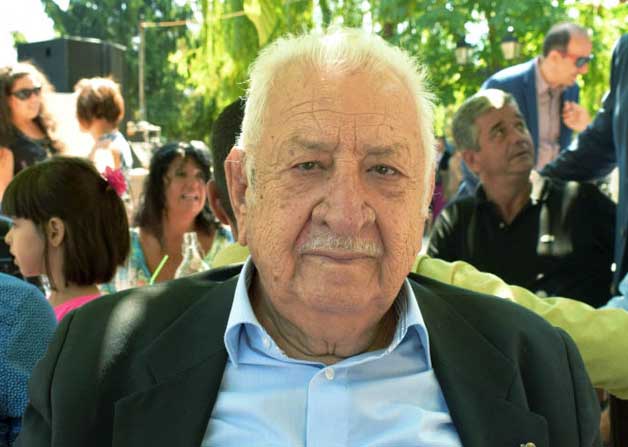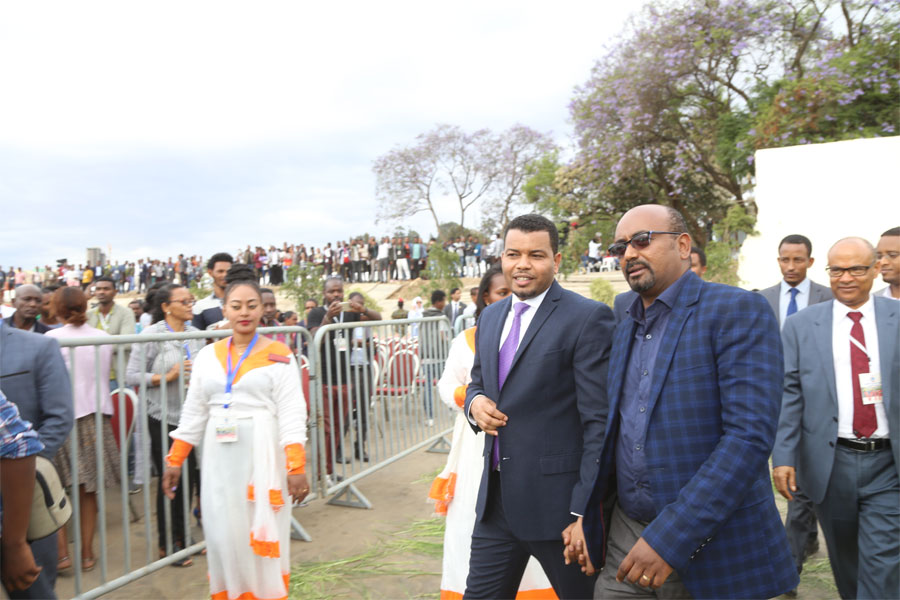
Obituary | Jan 23,2021
An international apparel company that has played a pioneering role in establishing the Hawassa Industrial Park has unplugged its operation and is leaving, owing to increasingly fluid security situations unfolding in the country. Philips-Van Heusen Corp (PVH), a principal tenant in the country's largest industrial park, announced last week it has terminated its operations in Ethiopia.
The New York-based fashion giant's executives say the increasingly volatile security situation is the reason behind their decision to close the facility. The move also comes weeks after Biden's administration moved to delist Ethiopia from duty- and quota-free trade preference under the Africa Growth & Opportunity Act (AGOA), beginning January 2022. Ethiopia generated 240 million dollars exporting under AGOA in 2019, close to 40pc of the total shipments to the United States.
The Act was an attraction for overseas companies like PVH, whose executives had persuaded Ethiopian authorities back in the early 2010s to invest in industrial parks specialised in products targeting exports.
PHV’s sudden departure is in stark contrast to the long process that led to its entry into the Ethiopian market in 2017, marking its first venture outside the United States.
In 2014, the world’s second-largest apparel company commissioned a study focused on African markets to identify the ideal destination for its venture. With a diverse portfolio of designer brands such as Calvin Klein and Tommy Hilfiger, PVH’s business model was based on sourcing through contractual arrangements with producers. The company's executives met with Arkebe Oqubay (PhD), then special advisor to the Prime Minister and the chief architect behind Ethiopia's industrial policy in 2016.
PVH was at the fore in joining Hawassa Industrial Park, constructed by China Civil Engineering Construction at 250 million dollars. Laying on 120,000sqm, the Park was inaugurated by former Prime Minister Hailemariam Desalegn in 2016.
With a daily production capacity of 7,000 shirts, PVH planned to ship 100 million dollars worth of commodities annually. Several US-based apparel companies like The Children’s Place and global giants such as H&M followed in PVH’s footsteps.
PVH’s departure was sudden, at least for its employees. Its senior managers broke the news of closing the facility to over 1,400 workers on Wednesday, November 17, 2021.
The employees were shocked.
“None of the workers had the slightest clue," said Zula Shega, who worked at the plant since it began operations in 2016.
Officials at the Ethiopian Investment Commission (EIC) were as surprised as the workers.
“We heard the news on Wednesday,” said Henok Solomon, director of communications at EIC. “We dispatched a team of experts to Hawassa as soon as we'd heard.”
Talks of the possible departure of big brands housed in Hawassa and other industrial parks have been around since the US government's announcement of delisting Ethiopia from AGOA.
Henok Asrat, director of communications at the Industrial Parks Development Corporation (IPDC), says the company had planned to close its operation in Hawassa before the delisting of AGOA was announced.
“The company notified the Corporation about its departure a few months ago after the sale of its facilities to another company,” he told Fortune.
In a statement issued last week, PVH said the sale of its Heritage brands earlier this year led it to begin a smooth transfer of the facility to a trusted supplier who is already active in Ethiopia. PVH sold its Heritage brands portfolio, including IZOD, Van Heusen, Arrow and Geoffrey Beene, to Authentic Brands Group in July this year for 220 million dollars.
"The speed and volatility of the escalating situation there [Ethiopia] made the transition no longer possible, resulting in the difficult decision to close the facility," says PVH in a statement.
Close to 1,430 workers of PVH formed a labour union not knowing about the intentions of their employers. The management did not inform them of the sale of its facilities to another entity, according to one of the union leaders who spoke to Fortune on condition of anonymity. But there were signs.
Angesom Gebreyohannes, president of the Industrial Federation of Textile Leather & Garment Workers Trade Union, was informed of PVH's plan to leave when managers of companies operating in Hawassa Industrial Park sat down with officials of the former Ministry of Labor & Social Affairs to discuss issues of labour union formation in early September.
Beginning last July, PVH hadn’t received new orders from its buyers, according to the union leader.
“We were producing to meet the orders the company received earlier,” he told Fortune.
PVH has pledged to compensate "all local operators" in compliance with the laws and disclosed its intention to make a three-month severance payment.
“They told us we'll be paid five months’ salary,” said Zule. “However, we haven't received a dime yet.”
The Labor Union did not take part in the decision, the union leader told Fortune.
PVH, however, claimed the decision on the compensation was made following consultations with the Federation.
“We don’t have the mandate to consult with employers about the compensation of their workers,” said Angesom. “We just gave them information about the legal requirements.”
The compensation gives little comfort for 1,400 workers like Zula, who earns a 2,110 Br monthly salary working as an operator.
"I don't know how I can survive after this," said Zula.
PUBLISHED ON
Nov 20,2021 [ VOL
22 , NO
1125]

Radar | Dec 04,2022

Radar | Aug 17,2025

Radar | Dec 29,2018

Fortune News | Feb 23,2019

Fortune News | Jun 24,2023

Dec 22 , 2024 . By TIZITA SHEWAFERAW
Charged with transforming colossal state-owned enterprises into modern and competitiv...

Aug 18 , 2024 . By AKSAH ITALO
Although predictable Yonas Zerihun's job in the ride-hailing service is not immune to...

Jul 28 , 2024 . By TIZITA SHEWAFERAW
Unhabitual, perhaps too many, Samuel Gebreyohannes, 38, used to occasionally enjoy a couple of beers at breakfast. However, he recently swit...

Jul 13 , 2024 . By AKSAH ITALO
Investors who rely on tractors, trucks, and field vehicles for commuting, transporting commodities, and f...

Oct 25 , 2025
The regulatory machinery is on overdrive. In only two years, no fewer than 35 new pro...

Oct 18 , 2025
The political establishment, notably the ruling party and its top brass, has become p...

Oct 11 , 2025
Ladislas Farago, a roving Associated Press (AP) correspondent, arrived in Ethiopia in...

Oct 4 , 2025
Eyob Tekalegn (PhD) had been in the Governor's chair for only weeks when, on Septembe...